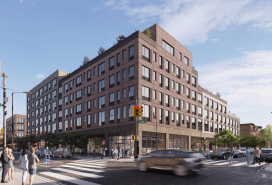Ask an Expert: How much can my condo board charge me to rent out my place?

Q. I own a condo that I lease out, and my board recently informed me and my fellow owners that they have decided to assess a sublet fee of two months common charges for each lease and lease renewal.
The board says this is "industry standard" and hence reasonable for condominiums. In addition to this fee, there are over $850 in application and move fees (as well as additional deposits for the move).
Our bylaws include what seem to be a standard provision which we would think would indicate against this sort of fee (nevermind whether or not it is market standard).
These fees seem extremely high. Are they really industry standard, as the board claims? Are they reasonable? Legal?
A. While there may be a nascent trend toward imposing sublet fees upon condo owners who rent out their units, the amounts you mention seem unusually high, say our experts.
"Our condominiums typically charge a one month common charge sublet fee and a $250 renewal fee," says Michael Wolfe, a property manager and president of Midboro Management. However, he says, "The majority of our condo buildings do not charge anything for a renewal and only require a copy of the new lease agreement. The standard move-in deposit is $1,000 refundable move and a $500 non-refundable accommodation/service fee."
Co-op and condo attorney Jeffrey Reich of Wolf Haldenstein Adler Freeman & Herz says that while sublet fees are more common than they used to be in condos, "I would not say that such fees have reached the level of an industry standard."
In fact, although co-ops commonly charge such fees, it is highly unusual to see condos impose a significant rental fee outside of the application fees, agrees real estate broker Mike Akerly of Akerly Real Estate.
"However, boards are often looking for ways to generate revenue particularly if they are in need of funds for unexpected capital expenditures or if they are struggling with owners who are in arrears on their common charges," Akerly said.
Another possisibility is that your board wants to discourage sublets. The reason might be quality-of-life issues with renters, or an owner-occupancy rate in your building that is too low to satisfy strict lending requirements. The latter makes it harder to obtain a mortgage on a unit or refinance one, thereby depressing resale values.
"Fees tend to be driven by the climate of the building," agrees Wolfe. "Many condos are instituting rules to become more 'co-op like' to remove the transient nature of many condominiums. Those tend to have higher fees. You need to find the building that fits your needs.'
Whether the fees can be legally challenged depends on your bylaws.
"Such fees could not be imposed without express authority in the condominium bylaws or properly enacted amendment thereto," says Reich.
Trouble at home? Get your NYC apartment-dweller questions answered by an expert! Send us your questions.
See all Ask an Expert.
Investment Bootcamp, Part 1: Are you the investing type?
Investment Bootcamp, Part 2: How to spot a good NYC investment property
Investment Bootcamp, Part 3: 10 mistakes to avoid when investing in NYC real estate



























